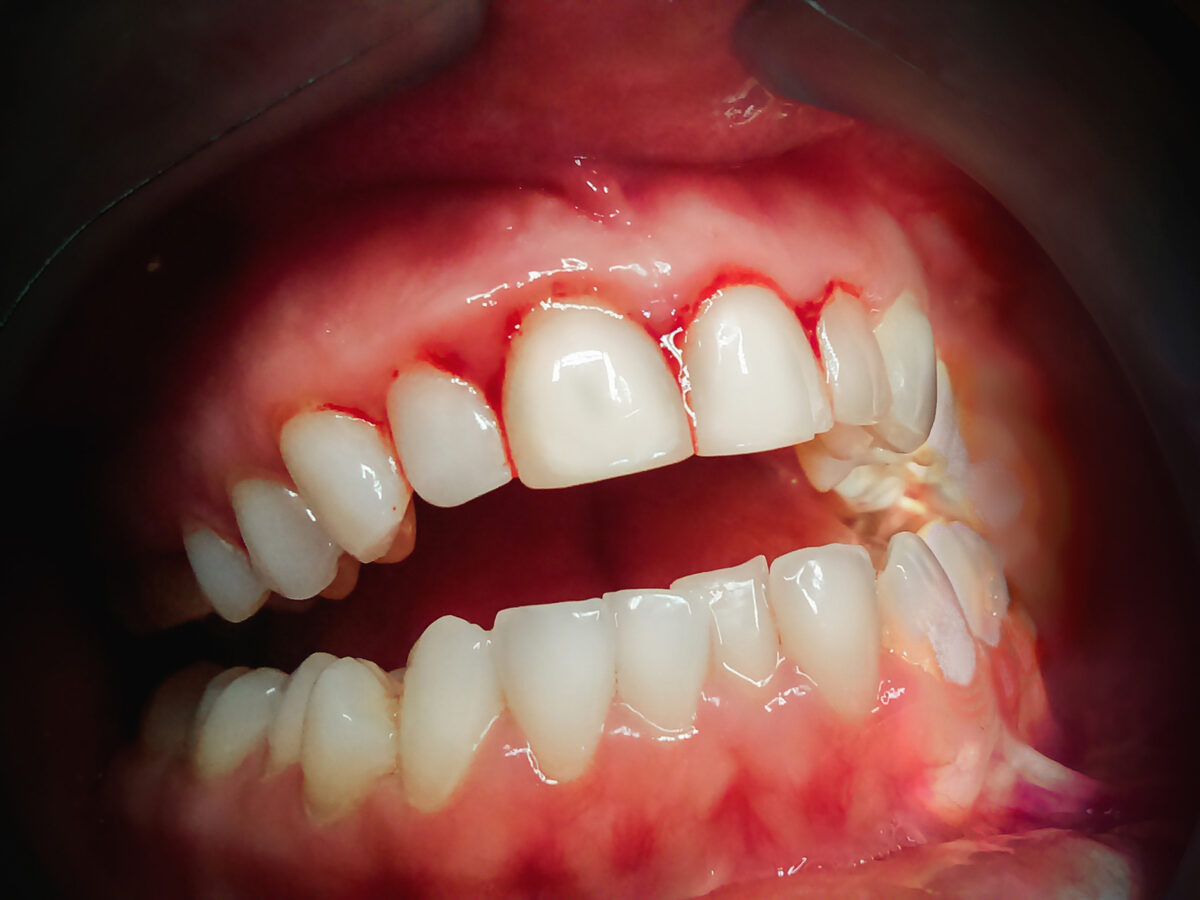While brushing your teeth, you notice blood in the foam you spat on your bathroom sink. You ignore it-something you have been doing for the past years! But now it’s time to stop and take a close look at your dental health. Many people complain about bleeding gums but never take them seriously or get them treated.
A bleeding gum can lead to gingival infection, a severe dental disease. Inflammation of the gum tissue around the teeth causes it. Leaving this infection untreated can lead to periodontitis. Eventually, the patient’s condition becomes too complex for any treatment to be effective, resulting in tooth loss.
While it may seem like a minor issue, bleeding gums can be a sign of a more serious problem that, if left untreated, can lead to a range of potential health issues. This blog post will explore the consequences of not treating gum issues and why seeking treatment as soon as possible is essential.
Risks of not treating bleeding gums
Here are some of the risk factors that increase with gum issues:
Gum Disease
Most often, bleeding gums result from gum disease, also known as periodontal disease. During gum disease, inflammation, and infection result from plaque buildup on the teeth. Symptoms of gum disease include redness, swelling, bleeding, bad breath, and tooth loss. Gingivitis can lead to tooth loss, significantly impacting your overall health and quality of life. Tooth loss can make it difficult to eat and speak and lead to changes in your facial structure over time.
Infection
You may also experience bleeding gums if you have an oral infection. This infection can spread to other body parts without treatment, leading to serious health problems. For example, gum disease has been associated with heart disease, stroke, and diabetes.
Bad Breath
Gum disease can cause bad breath, also known as halitosis. If left untreated, this bad breath can be challenging to get rid of and significantly impact your social life and self-esteem. Chronic bad breath can also be a sign of other health problems, so it is essential to seek treatment if you are experiencing this symptom.
Pain and Discomfort
Bleeding gums can cause pain and discomfort, especially when brushing, flossing, or eating. The severity of gum disease will determine how severe the pain can be. If left untreated, the pain and discomfort can worsen, making it difficult to perform everyday activities such as eating and speaking.
Increased Risk of Systemic Diseases
Recent research has linked bleeding gums to an increased risk of systemic diseases such as heart disease, stroke, and diabetes. The exact reason for this link is still being studied, but gum disease is believed to cause inflammation contributing to these other health problems. If you are at risk for these diseases, seeking treatment for bleeding gums as soon as possible is essential.
Let’s see some prevention and treatment tips!
Prevention and treatment of bleeding gums are both possible. The most crucial step is to practice good oral hygiene, including brushing your teeth twice daily, flossing daily, and using an antiseptic mouthwash. To ensure your teeth are healthy, you should schedule regular dental checkups.
If you are experiencing bleeding gums, your dentist may recommend scaling and root planing as a deep cleaning procedure. Smoothing rough spots on the root of the teeth is a crucial part of this process, which involves the removal of plaque and tartar.
In more severe cases of gum disease, surgery may be necessary to repair the damage to the teeth. It can include gum grafting, in which tissues from another part of the mouth are used to replace damaged gum tissue.
Lastly, bleeding gums may seem minor but can indicate a more serious underlying health issue. Therefore, it should not be left untreated.

